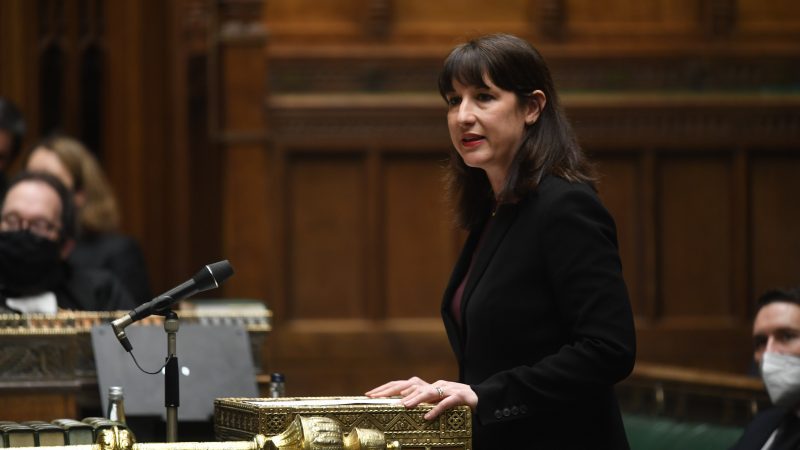
Rachel Reeves has warned that the UK has “fantastic strengths” but is being “held back” by “mistakes” made by the Conservative government and argued that we need a “serious long-term plan to get our economy growing again”.
Responding to the autumn statement, the Shadow Chancellor said “Labour knows that there are fairer choices to make” and stressed its plan would be “powered by the talent and effort of millions of working people and thousands of businesses”.
She told MPs that Britain needs a “fairer, greener, and more dynamic economy creating jobs across every part of the country in homegrown renewables, green hydrogen, and carbon capture and storage”.
“With a modern industrial strategy where government works hand in hand with business properly fixing business rates so that small businesses and our high streets thrive again making Brexit work and ensuring Britain is the best place in the world to start and grow a business. That’s what Labour will do,” she said.
The Shadow Chancellor warned that the Conservatives have “forced” the economy into a “doom loop” in which “low growth leads to higher taxes, lower investment, squeezed wages and the running down of public services”.
She argued the country needs to “break free from this vicious cycle of stagnation, with fairer choices and a proper plan for growth” but that “instead of learning from the mistakes of the last decade, [the Conservatives are] simply repeating them”.
Reeves dismissed global comparisons made by Jeremy Hunt today, saying that the UK is the only G7 country poorer than it was before Covid and told parliament that “this is the price of a decade of Tory choices and economic failure”.
The Chancellor had claimed that the “we protect the vulnerable” because “to be British is to be compassionate”. He argued that the UK is “not alone in facing these problems” and described the economic situation as an “international crisis”.
Hunt told parliament that the government would reduce the 45% income tax threshold from £150,000 to £125,140. He also announced a cut to dividend allowance to £1,000 next year, to reduce further to £500 the following year.
He unveiled threshold freezes, including for income tax and inheritance tax for a further two years, on top of an existing four-year freeze, to April 2028, and said electric vehicles would no longer be exempt from excise duty from 2025.
Hunt said he has “no objection to windfall taxes” if they are “genuinely about windfall profits caused by unexpected increases” but said they should be “temporary”. He announced that the existing levy will be raised to 35% from 25% and introduced a new temporary 45% levy on electricity producers.
Reeves highlighted that her party had been calling for the windfall tax on oil and gas companies to be extended since January, and said the government had had to be “dragged kicking and screaming” to do so.
“The government has announced plans for energy bills next year, but bill-payers will still see them go up next spring, leaving far too many people wondering how they’ll make ends meet,” she added.
The Chancellor announced new one-off payments of £900 to households on means-tested benefits, £300 to pensioner households, and £150 for individuals on disability benefit and committed an additional £1bn of funding to enable a further extension of the household support fund.
He said social rents will be capped at 7% next year, announced a rise in the national living wage to £10.42 next year, confirmed that benefits will rise in line with inflation by 10.1%, that the triple lock on pensions would remain and that the benefit cap will be increased with inflation next year.
Chris Hayes, a senior analyst at Common Wealth, told LabourList “these choices are not necessary – they are political” and warned that “despite the Chancellor’s rhetoric about letting the broadest shoulders carry the greatest weight, the policies on offer are weak”.
“Despite cutting the tax-free allowance for dividends, asset owners continue to enjoy significant preferential tax treatment compared to working people. Instead of closing that unjustifiable gap, the Chancellor has opted for further austerity for our teetering public services,” he said.
“At a minimum, the government should be bringing dividends tax and capital gains tax into line with taxes on income from work – a measure which would raise billions from asset owners.”




More from LabourList
Almost half of Labour members oppose plans to restrict jury trials, poll finds
‘How Labour can finally fix Britain’s 5G problem’
‘The University of the Air – celebrating 60 years of Harold Wilson and Jennie Lee’s vision’